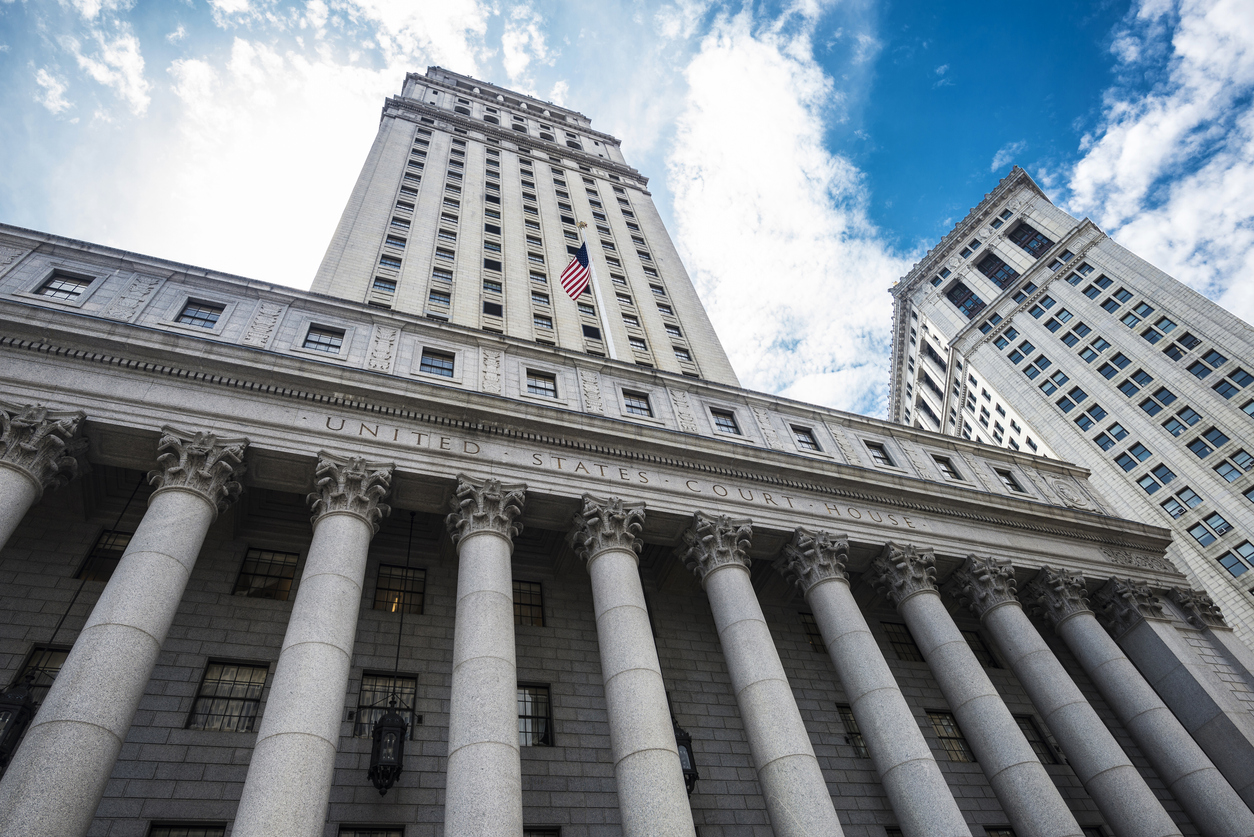Law school deans join recent law school graduates, the American Bar Association, and others in states across the country asking for states to take steps to allow law school graduates to practice law without taking the bar. Many states have postponed or even canceled bar exams for recent law school graduates. These individuals cannot practice…
Read MoreThe Texas Bar Journal publishes a list of disciplinary actions each month. The May 2020 edition has over a dozen instances regarding attorney disciplinary actions, including judicial actions, disbarments, suspensions, and public reprimands. Anyone searching for an attorney can access information about the attorney on the Texas Bar Association’s website.
The Texas Government Code §81.115 requires that an attorney licensed to practice in Texas has a public profile. The profile includes basic information about the attorney, including the firm size, law school attended, year graduated, and any specialties. The profile also includes the attorney’s public disciplinary history for Texas and other states.
The information for disciplinary sanctions is only available online for the past ten years. If someone needs disciplinary or sanction information beyond ten years, the person must contact the Texas Chief Disciplinary Counsel.
Rules Governing Professional Conduct of Lawyers
Ethics is a set of rules and codes that regulate the conduct of attorneys. The American Bar Association has drafted Model Rules of Professional Responsibility as a guide for ethical conduct by attorneys. However, each state is responsible for drafting and passing a set of codes and rules of professional conduct for attorneys licensed to practice within the state.
The code of conduct covers numerous concepts and areas related to the practice of law. Some of the topics covered in a code of conduct include, but are not limited to:
- Professional judgment;
- Conflicts of interests;
- Disclosure of relevant information;
- Confidentiality;
- Zealous representation;
- Competence; and,
- Fiduciary duty.
Code of Ethics for Attorneys Practicing in Texas
When individuals pass the Texas bar and are admitted to practice law in Texas, those lawyers take an oath to obey the Texas Disciplinary Rules of Professional Conduct and the Texas Rules of Disciplinary Procedure.
The Texas lawyer’s Creed describes how a lawyer should conduct business within the legal system. It also directs that a lawyer should use all appropriate legal means to protect and advance a client’s best interest. The Creed also describes a lawyer’s duties for conduct with other lawyers and judges.
Reasons an Attorney May be Disciplined
Attorney misconduct may result in a variety of actions, including disbarment and suspension. Common reasons why a court may discipline a lawyer include:
- Willful violation of a court order;
- Theft of client funds or property;
- Crimes of moral turpitude;
- Failure to pay bar dues;
- Failing to maintain continuing legal education requirements;
- Personal misconduct that reflects negatively on the attorney’s character, honesty, or integrity;
- Failing to provide adequate communication with clients; and,
- Breach a client’s confidence and trust.
An attorney may face disciplinary action for conduct that is legal but unethical.
What is a Fiduciary Duty?
One of the essential elements of a lawyer’s duty to clients is the fiduciary duty. A fiduciary is someone whom another party has placed the utmost trust to handle a matter or protect money or property. A fiduciary has a duty to act in the best interest of the beneficiary.
The fiduciary relationship is created when the client hires the attorney, and the attorney agrees to represent the client. The attorney has several duties when acting as a fiduciary for the client.
For example, an attorney’s duty of loyalty to the client prevents the attorney from taking any actions that are adverse to the client. Lawyers should not profit or gain material benefit from a third party in connection with the attorney’s representation of the client.
A lawyer also owes a client a duty of confidentiality. An attorney should not disclose or use information the attorney learns while representing a client for any other purpose than representing the client. A duty to maintain confidentiality goes beyond the attorney-client privilege.
The duty of confidentiality prevents a lawyer from using any information for the lawyer’s benefit. It also prevents the lawyer from disclosure information, either for the lawyer’s benefit or the benefit of a third party.
Lawyers Also Owe Clients a Duty to Exercise Reasonable Care
An attorney cannot guarantee a specific outcome in a case. The attorney gives a legal opinion based on the attorney’s experience and the attorney’s interpretation of the law. That legal opinion is not a promise of an outcome.
However, the attorney does have a duty to exercise reasonable care throughout the representation of a client. The attorney should take all reasonable measures and steps to achieve the outcome the client desires.
Examples of failing to exercise reasonable care include, but are not limited to:
- Failing to research case law adequately and apply statutes correctly;
- Failing to perform an adequate investigation and discovery;
- Failing to monitor deadlines; and,
- Failing to obtain a client’s consent.
If a lawyer fails to exercise reasonable care or fulfill any of the other duties required by the attorney-client relationship, a client may have a civil claim against the attorney for legal malpractice.
Read More
People are suffering across the United States because of the COVID-19 pandemic. Attorneys and law firms continue to provide essential legal services people need. Lawyers in New York City want to do more.
Like most states, New York attorneys are prohibited from providing financial assistance to clients. As inhumane as it sounds, doing so can violate New York Bar ethics rules. Leaders are working to change that.
An amendment to the New York ethics rules would let lawyers help their clients with basic living necessities, such as food and medication. The change is necessary so that attorneys who help clients do not violate ethics rules.
New York City Bar Supports the Humanitarian Exception
The New York City Bar Association sent a letter to the Chief Judge of New York State and the Presiding Justices of the New York Supreme Court Appellate Divisions. The letter calls for the immediate adoption of the proposed amendment to the New York Rules of Professional Conduct Rule 1.8(e).
The letter reminds the justices that the coronavirus has severely affected many New Yorkers. Businesses have closed, individuals have lost their jobs, and thousands of people have been ill because of the pandemic. Many people are going without basic living essentials because of the financial hardships caused by the pandemic.
Lawyers have come forward to offer their services for free to individuals who need legal services but cannot afford an attorney. Those same lawyers want to help their clients with their basic needs, but the current ethics rules prevent them from providing this vital humanitarian relief.
Ethics Rules Prohibit Financial Assistance for Clients
The current New York State Rules of Professional Conduct prevents attorneys from giving financial aid to their clients.
Rule 1.8(e) states that a lawyer who is representing a client in pending litigation or in connection with contemplated litigation cannot guarantee or advance financial aid to a client. The attorney may advance court costs or the expenses of litigation. The advancement of costs and expenses may even be contingent upon the outcome of the case.
According to Mirman, Markovits & Landau, a personal injury law firm in New York City, “the rule allows an attorney to pay the court costs and expenses of litigation if the client is a pro bono client. Lawyers may even pay court costs and expenses in cases in which their fees are payable as a percentage of the recovery in the case.”
The rule does not permit an attorney to buy groceries for a client. It does not allow an attorney to help a client obtain medical care or medication that the client needs. The rule does not let an attorney buy shoes of a client’s child who desperately needs another pair of shoes.
Proposed Amendment Adds an Exception for Humanitarian Relief
The NYC Bar Association stated in a March 2018 report that New York’s bar should take the lead in improving access to justice. Additionally, it should be easier for lawyers to act on their charitable desires and dedication to public service.
With the devastation caused by COVID-19 in New York, that statement takes on new meaning and purpose. The report also pointed out that other states have adopted a humanitarian exemption.
The proposed change in the rules of professional conduct creates a humanitarian exception to Rule 1.8(e). The change would allow a lawyer providing services to a client for free to offer financial aid to indigent clients. The rule would also apply to not-for-profit legal services, law school clinical programs, and pro bono programs at law schools.
Under the amendment, the lawyer or organization cannot promise financial aid as a way to retain clients. Lawyers cannot use the promise of financial aid as a way to encourage a person to remain the attorney’s client. Also, lawyers who offer financial aid cannot advertise or make known that the attorney is willing to provide financial aid to indigent clients.
The amendment to create the humanitarian exception has the backing of the New York State Bar Association.
Removing the Barrier Preventing Lawyers From Serving Their Clients
The NYC Bar Association asked the Courts to adopt the amendment now to allow lawyers to serve their clients in meaningful ways. If the Courts are unwilling to approve the amendment, the Bar asked the Courts to consider a temporary solution.
The Bar suggested that the Courts approve the humanitarian exemption until the COVID-19 state of emergency ends. A temporary order allows lawyers to provide much-needed aid to clients affected by the coronavirus pandemic.
Attorneys see how their clients are struggling. They are aware people are hungry and in need. They need the Courts to give them permission to help.
Read More
For nearly three decades, the Rules of Professional Conduct for attorneys in California have remained largely unchanged. That is, until now. The State Supreme Court recently approved a major overhaul of the ethics rules that affect more than 250,000 attorneys in the Golden State. In total, there are 69 new and/or modified rules. These new rules of ethics will go into effect on November 1, 2018.
If you’re an attorney in the state of California you’ll need to brush up on your new ethical obligations. Here are 10 of the most important things you need to know about the new Rules of Professional Conduct.
1. Don’t Use Confidential Information to the Disadvantage of a Client
Under the new rules, attorneys are prohibited from using confidential information about a client to their disadvantage. You may only use confidential information to disadvantage a client if that client has provided consent in writing. A breach of your client’s trust violates the duty of loyalty. [Rule 1.8.2]
2. Plea Deals Require Written Consent
If you practice criminal law, you’ll need to make sure that your client fully understands the consequences of submitting a guilty or nolo contendere plea. Why? You need your client’s written consent in hand before a court will approve either plea. It’s your job to make sure that your client fully understands the repercussions of entering any plea other than “not guilty.” [Rule 1.8.7]
3. You Must Act With Your Client’s Best Interests At Heart
Ethical rules affecting attorneys have always encouraged attorneys to do what is best for their clients. The new California Rules of Professional Conduct impose new diligence requirements to reinforce this idea. As an attorney, you are now required to act with “commitment and dedication” to your client’s interests. You are also prohibited from unnecessarily delaying, disregarding, or neglecting matters that are important to your client’s legal issue. [Rule 1.3]
4. Be Careful When Drafting a Will or Financial Instrument
Attorneys are prohibited from preparing a legal document, such as a Last Will and Testament, that gives the lawyer (or their family members) a substantial gift. The only times when this will be acceptable is if:
- The attorney is related to the client, or
- The client has also sought additional legal advice from another attorney.
[Rule 1.8.3]
5. Confidentiality Extends to Prospective Clients
Attorney-client privilege and confidentiality are essential for proper legal representation. Under the new rules, attorneys must extend confidentiality to all clients, including those who are inquiring about legal representation. Clients need to be forthcoming with attorneys when trying to find appropriate legal counsel. This can only happen when clients feel comfortable sharing personal, intimate, and potentially-damaging information with an attorney. So if you’re a personal injury lawyer and offer free consultations, you will want to make sure your intake team understands that the rules of confidentiality extend to all prospective clients, even if they do not become actual clients. [Rule 1.18]
6. Supervise Young Attorneys and Aides Closely
If you hold a position of authority in your firm, you need to make sure that you supervise your subordinates. The people who work for you also have an obligation to abide by the Rules of Professional Conduct. It’s your job to make sure that they follow rules of ethics and provide the best possible legal services to your clients. [Rules 5.1 – 5.3]
7. Rules on Discrimination Are Stronger
The new rules expand the state’s ban on discrimination and harassment in the workplace. Attorneys are now expressly prohibited from unlawful discrimination and harassment in the representation of clients. This applies to representation, termination, and the refusal to represent a client. Unlawful discrimination and harassment are defined by state and federal law. The State Bar reserves the right to look into allegations of unlawful conduct even if no prior complaints have been filed. [Rule 8.4.1]
8. Sex With Clients is Prohibited
Attorneys hold the fates of their clients in their hands. It can be easy for attorneys to take advantage of this position of power. Clients may feel pressured into engaging in sexual relations with their attorney to secure the best possible outcome in their case. Under the new rules, however, attorneys are expressly forbidden from having sex with a client. Sex is only permissible if the attorney and client had a sexual relationship that predated the attorney-client relationship. [Rule 1.8.10]
9. You’re Prohibited From Doing Things That Lack a Substantial Purpose
When you represent a client, time is money. In addition to pursuing an outcome that serves their client’s best interest, an attorney must also act diligently and with purpose. Under the new rules, attorneys are prohibited from engaging in conduct that has no substantial purpose. Conduct will be considered to lack a substantial purpose if the only intent is to cause unnecessary expense or delay.
10. Fees Have to Be Fair and Transparent
Fees are always a highly-contested issue. In California, ethics rules prohibit attorneys from charging fees that are unconscionable. The new Rules of Professional conduct help to clarify when fees may be unconscionable. Under the new rules, fees may be considered to be unconscionable if the attorney has:
- Failed to disclose material facts to the client,
- Fraudulently misled the client, or
- Intentionally overreached when negotiating a fee.
Unconscionability extends to flat fees, retainers, and contingent fees. [Rule 5.1]
Violating the Rules of Professional Conduct can have serious professional consequences. All attorneys must become familiar with all new ethical requirements before the rules become effective on November 1, 2018.
About the Author: Sherwin Arazani is a civil litigation and personal injury attorney at Citywide Law Group, a Los Angeles, CA based law firm. In this post, he covers the latest updates to the California Rules of Professional Conduct for attorneys. For more information, visit citywidelaw.com.
Read More


